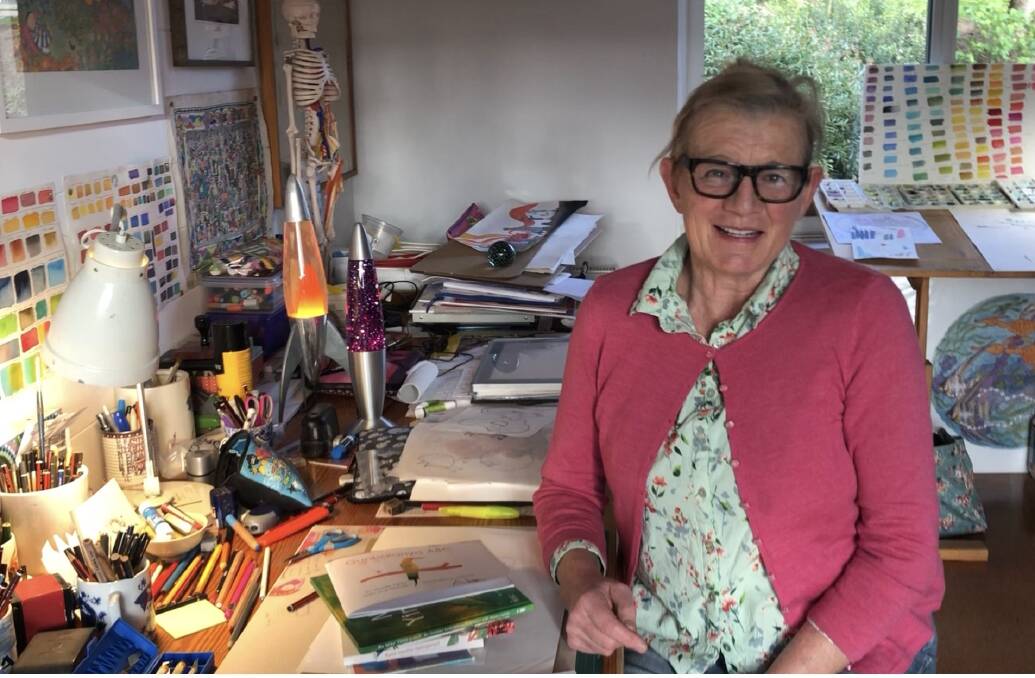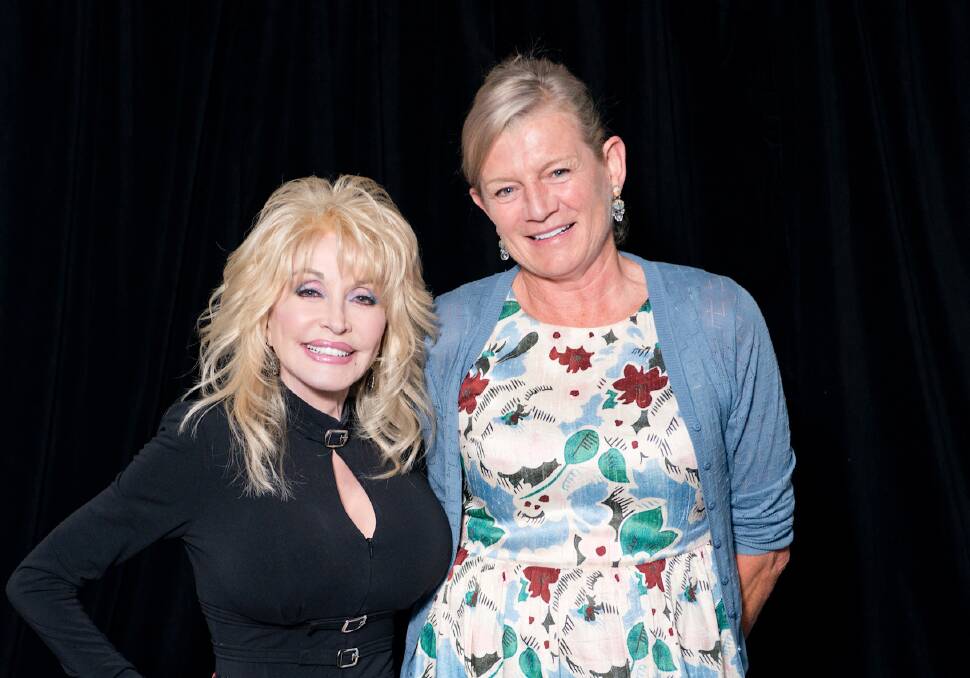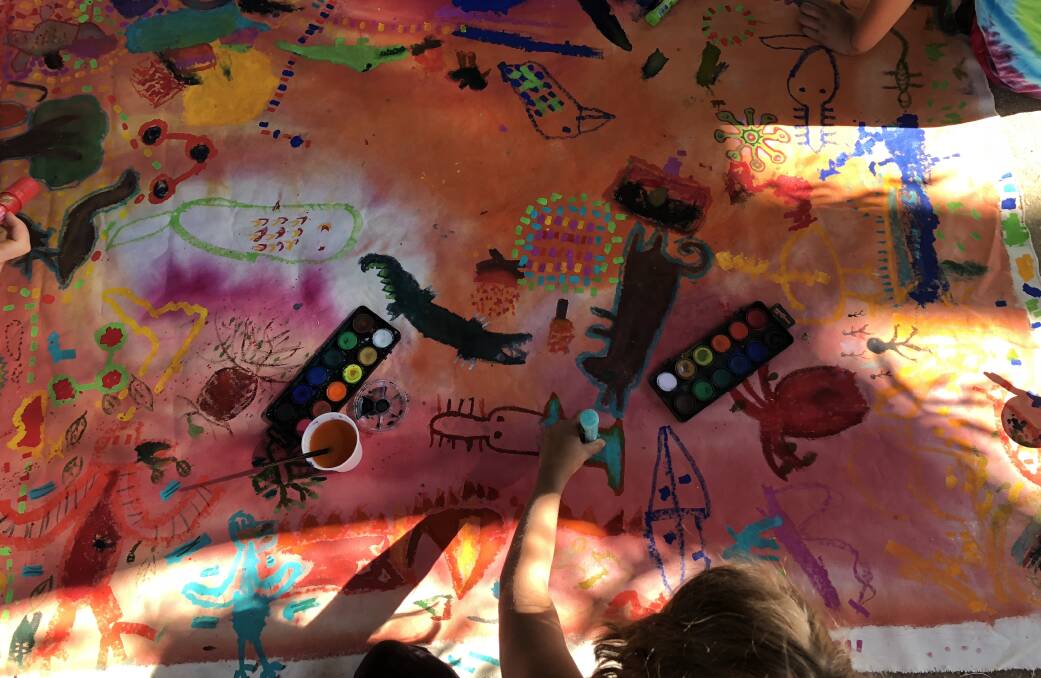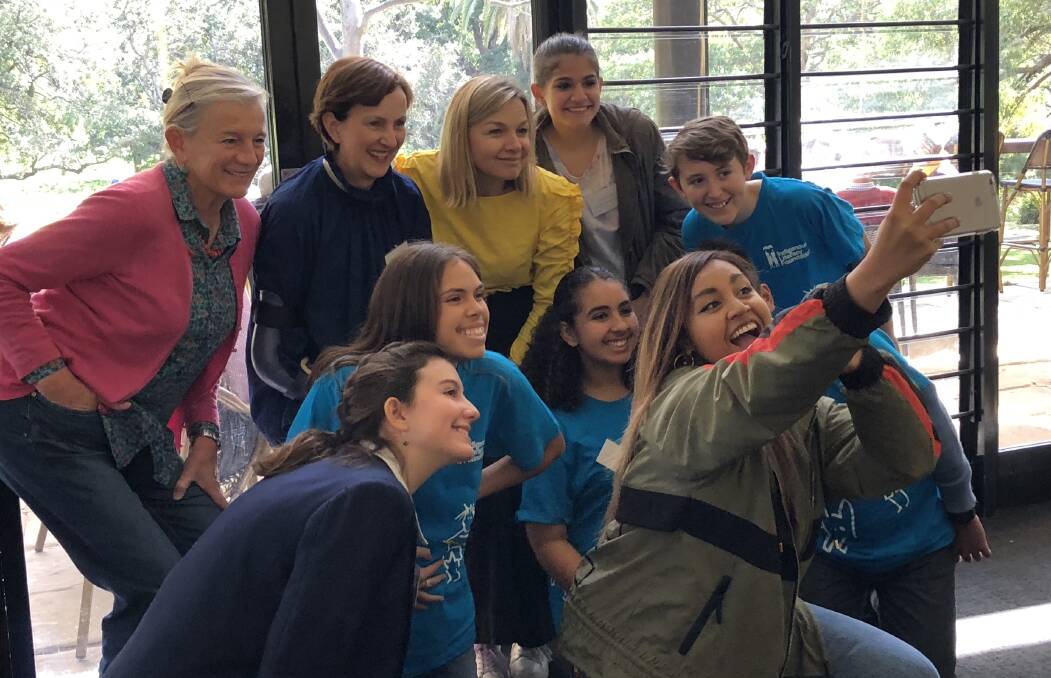
WHEN children's author and illustrator Alison Lester wrote the picture book, Sophie Scott Goes South, inspired by an expedition to the Antarctic she almost hit an iceberg.
Create a free account to read this article
$0/
(min cost $0)
or signup to continue reading
The award-winning author and Australia's Inaugural Children's Laureate from 2011 to 2013 was inspired to write the book after travelling on the Aurora Australis as an Antarctic Arts Fellow in 2005. It tells the story of nine-year-old Sophie who goes on a month-long voyage to the Antarctic, with her dad, the captain of an icebreaker.
"I remember someone at the Antartic Division saying, 'but a little girl can't travel on the Aurora Australis - it would never happen'," said Lester, who lives and works from her rural property in Victoria's West Gippsland.
But for Lester, who has written and illustrated more than 30 books over more than three decades, children can do anything - especially in books where the power of imagination means everything is possible.
From her first picture book Clive Eats Alligators and best-seller Imagine to The Journey Home where two friends, Wild and Woolly, dig such a big hole in their sandpit that they come out at the North Pole, Lester's delightful books mix imaginary worlds with everyday life, encouraging children to believe in themselves and celebrate the differences that make them special.

And this is the message Lester takes with her when she travels out to remote Australian communities - armed with her books and stacks of art materials - as an ambassador for the Indigenous Literacy Foundation (ILF).
Visiting schools around the country, Lester uses her books to help children and adults write and draw about their own lives.
"I feel like it's an incredible priviledge and it's always thrilling to go out and see the children and watch what they create with these beautiful art supplies. They are so confident and want to tell their stories and it's so important that these children have their own lives and communities reflected in their books."
This September 2 is Indigenous Literacy Day, and to celebrate Lester will be joining other ambassadors including singer Jessica Mauboy and special guest Archie Roach, along with children from Jilkminggan and the Tiwi Islands in the Northern Territory for a special YouTube live event.
Lester got in touch with the ILF after years of visiting schools in remote communites. One of the first places she visited about 20 years ago as an artist in residence was Gunbalanya, an Aboriginal community in west Arnhem Land where the main language spoken is Kunwinjku.
"It was the start of a lovely relationship - we made books, painted murals, did plays. It was a really lovely connection," she said.
"Then other schools asked if I could go and visit them and I've been doing so ever since. It's wonderful travelling and meeting people. I've had to learn to shut up and listen. I'm always learning more than I teach others."
While COVID-19 has put any travel plans on hold for now, Lester is still keeping in touch with fans, answering questions online posted by readers of The Guardian and sending videos on drawing and art techniques to communities in the Tiwi Islands.
"I get asked a lot where I get my ideas from. I'm very fortunate, I had a lovely childhood growing up on a farm and that section of my childhood has stayed with me," she said.
She also has a deep love for the Aussie bush and animals, from the horses she grew up with to her pet dogs. "There's even a mangy wombat living in my barn that I'm keeping an eye on right now."

A highlight of her writing career, she said, was when her book Are We There Yet? was chosen as the first book to be given to an Australian child from Dolly Parton's Imagination Reading Library - a community based initiative that provides children with free books each month from birth to age five.
"I was really chuffed when my book was chosen and I actually got to meet Dolly too, because she was out here for a concert," said Lester.
She said while stage four lockdown has meant she's had to temporarily shut her shop and gallery in Fish Creek, it has meant there is more time to catch up on unfinished projects.
In her Clive Eats Alligators 'series' - started in 1985 - the six books follow a group of seven fictional children (Clive, Rosie, Frank, Tessa, Ernie, Celeste and Nicky) celebrating their different interests and quirks.
"Years ago I wrote Nicky Catches Koalas, but never got round to illustrating it. She is the only character that still doesn't have her own book. So that's what I'm going to work on next," she said.
As a passionate lover of wildlife, it won't be the first of Lester's books that touches on Australian animals and environmental issues.
One Small Island, co-written with Coral Tulloch and inspired by her Antarctic voyage, tells the story of Macquarie Island's unique geological history and the impact of humans on the environment.
"I get so upset about the loss of wildlife. It is so important to look after our world," she said.
Find out more about Alison Lester at alisonlester.com

International Literacy Day
Catch Alison Lester and other Indigenous Literacy Foundation ambassadors online on September 2 for the first Indigenous Literacy Day (ILD) Youtube event.
In past years, this event has taken place at Sydney Opera House with children from remote communities and local schools but this year, due to COVID-19, it is open for the first time to everyone Australia-wide.
The Indigenous Literary Foundation gifts thousands of new culturally appropriate books - with a focus on early literacy and first language - to children around Australia, and also runs programs to inspire communities to tell and publish their own stories.
The ILF has have supplied over 440,000 books to over 400 communities, 40 per cent by Indigenous authors and illustrators.
Through its Community Literacy Projects, the ILF has worked with and published books in many Aboriginal languages from Walmajarri in the Kimberley region, to Arabana in South Australia, to Kriol in the Katherine region.
For more information on the not-for-profit Indigenous Literacy Foundation, and how to help, go to indigenousliteracyfoundation.org.au


